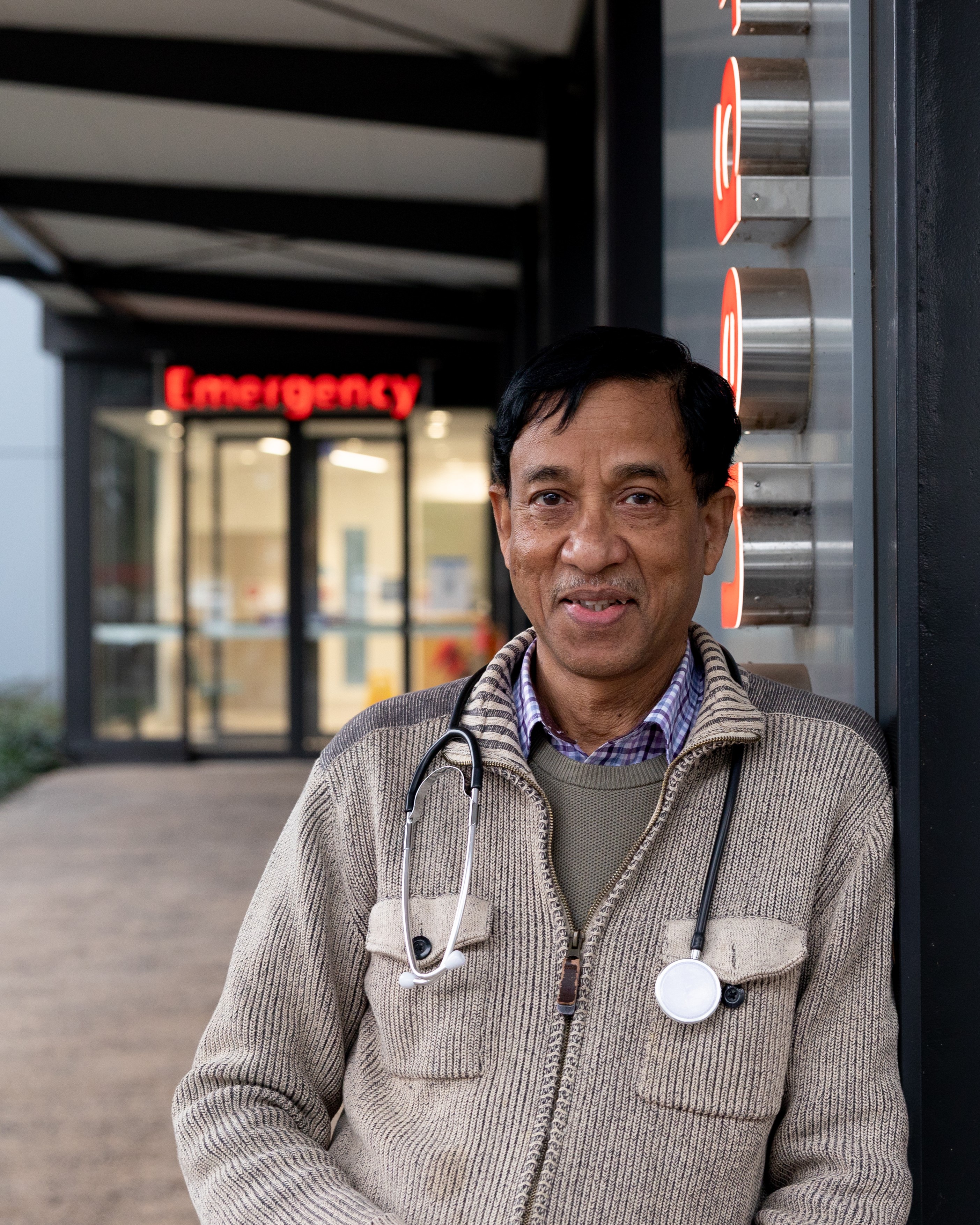About the AST
This AST is designed to build your confidence in managing emergencies across a wide range of settings, with practical, hands-on training tailored for real-world practice.
From pre-hospital care to emergency department assessment and ongoing management, you’ll develop the skills to manage diverse patient needs. Whether working in an isolated solo practice or a regional hospital with specialty services, this AST prepares you for many scenarios.
The curriculum spans essential disciplines including anaesthetics, surgery, orthopaedics, internal medicine, and paediatrics, ensuring you gain the comprehensive expertise required to excel in emergency medicine.

Curriculum highlights / credentials
A Rural Generalist who completes the AST in Emergency Medicine can:
- Work independently as a senior medical officer in a rural hospital
- Work without local specialist emergency support
- Work as part of an on-site team with other skilled medical, nursing and allied health practitioners
- Provide definitive emergency medical care including emergency medicine procedural interventions for patients in Australian Triage Categories 3, 4 & 5
- Provide definitive emergency medical care including emergency medicine procedural interventions for individual patients in Australian Triage Categories 1 and 2
- Provide an emergency advisory resource to other Rural Generalists Advanced Specialised Training Emergency Medicine
- Maximise the effectiveness of specialist outreach and telemedicine services in their communities
- Assist in training other Rural Generalists
- Assist in the development, provision and promotion of emergency services
- Engage in, foster, and encourage research
- Develop health policies and procedures for rural emergency services.
Where you can complete this AST
Training must be done at an ACRRM training post that is accredited in emergency medicine. Browse the training posts below.
Member stories
Read stories of ACRRM members who have or are currently training to have an AST in Emergency Medicine.
Since we last spoke to Dr Dickson, he has been awarded Fellowship, and the adventure has kept rolling on. Now stationed on Macquarie Island in the far southwest of the Pacific Ocean, Dr Dickson recently shared an update with us, on what it’s like to be the expedition doctor on one of Australia’s most remote and isolated outposts.
Update from Dr Robert Dickson
At the moment I'm working on Macquarie Island - a World Heritage Area around 1500km southeast of Hobart on which the Australian Antarctic Program maintains a permanent research station. I'm not even halfway through a 12-month posting.
It is the classic niche Antarctic medical experience - you are the on-site surgeon, anaesthetist, physiotherapist, pharmacist, radiographer, dentist, counsellor etc. But expedition medicine is all about prevention, and the Antarctic Program has a long successful history managing risk and preventing medical drama. So, the work more accurately involves maintaining the medical facility, occupational health and navigating my way in a small isolated community of only 16 people. The island is high on natural beauty, but the remoteness is inescapable. Needless to say, this is teaching me a lot. About the value of self-awareness. About what's required to thrive in a team which has to work, eat and relax together. About the resilience which can come from navigating life's hurdles without your normal supports.
These lessons are all very relevant to rural general practice - they all help with the never-ending journey to build an ability to help patients with sticky logistical, emotional and ethical dilemmas. The kinds of dilemmas that don't have therapeutic guidelines.
Rural generalism both enables and encourages this type of work. As a medical career, rural generalism is unparalleled in terms of the potential diversity and the ability to personalise your experience. Of course, training with ACRRM is focused on developing a broad skillset and knowledge base. But as far as I'm concerned, what ACRRM really pioneers is providing registrars with the flexibility and affirmation to also set goals of their own and to develop their own particular expertise based on their strengths, as well as what they see as the needs of their community. Life isn't 'one size fits all' and rural generalism reflects this.
Read part 1 of Dr Dickson's story here.
Life isn't 'one size fits all' and rural generalism reflects this.
Got a question about training?
You can call us on 1800 223 226 or contact the training team.




